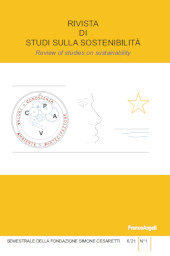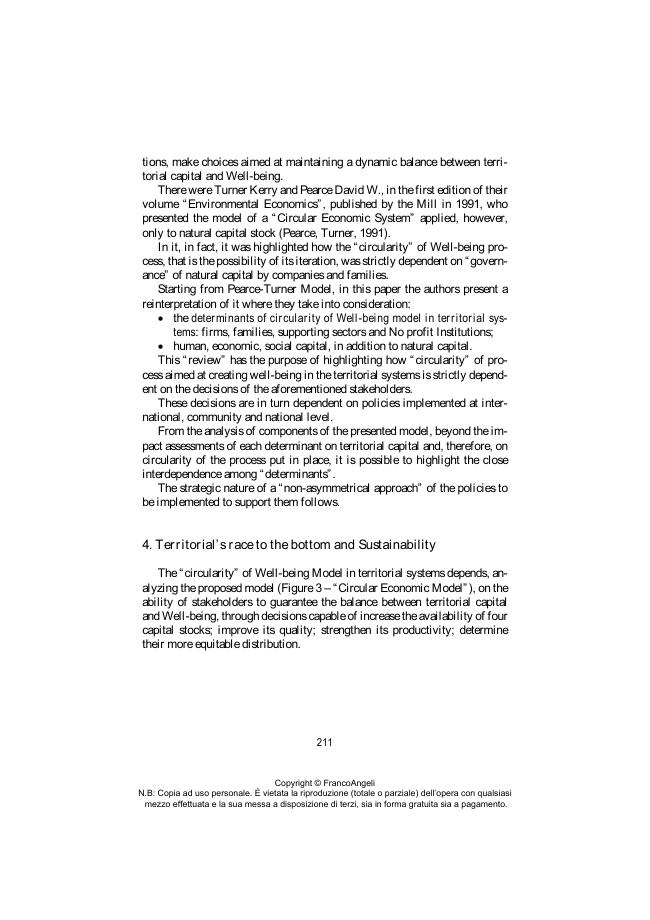Circular economic analysis for sustainability
201-221 p.
Overcoming the current development model, universally deemed unsustainable, requires, in the various Territorial Systems, the implementation of a strategy based on four components which are closely interconnected: Supporting sectors (research, training and communication); Business production and investment models; Household consumption and savings models and No profit Institutions decisionmaking models. Strategy which, based on policies acting symmetrically on the four components mentioned above, is capable of guiding and supporting the Society towards a growing balance between intragenerational and intergenerational equity. In the present paper, the authors have highlighted the centrality of the Territorial Capital for the achievement of a Sustainable Wellbeing; analyzed the path towards Agenda 2030, which has finally codified this centrality; presented a Circular Economic Model proposed to analyze the determinants of "circularity" of Wellbeing.
Finally, the criteria are defined for an impact analysis of the new policies that are emerging at international, european and national level for building a sustainable future. [Publisher's text].
Fait partie de
Rivista di studi sulla sostenibilità : XI, 1, 2021-
Articles du même numéro (disponibles individuellement)
-
Informations
Code DOI : 10.3280/RISS2021-001012
ISSN: 2239-1959
KEYWORDS
- territorial capital, wellbeing sustainability, Circularity, Agenda 2030, Policies for Sustainability, intragenerational equity and intergenerational equity



